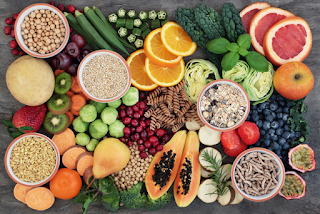Where To Earn A Nutrition Degree Online In 2024
NUTR.1100 Nutrition And Wellness (Formerly 35.210 And NUTR.2100))
Id: 038081 Credits Min: 3 Credits Max: 3 DescriptionThis course is an introductory course to the science of nutrition as it applies to everyday life and health. Focus will include the six major nutrients: carbohydrates, lipids (fats), protein, vitamins, minerals, and water and their importance in the human body. Digestion, absorption, and metabolism in the human body will be introduced. The course will also examine energy balance and weight management as they relate to nutrition and fitness. The impact of culture, demographics and ethnicity on nutritional intake will be discussed. Students will explore the relationship between nutrition and health through laboratory experiences. Students should not be taking NUTR.1100 if they already took NUTR.2060.
View Current OfferingsBiomedical & Nutritional Sciences
Students interested in expanding their knowledge in nutrition may choose to pursue the minor in Nutrition offered by the Department of Biomedical & Nutritional Sciences.
Prior to declaring the minor, students must meet the following requirements:
The minor in Nutrition consists of 23 credits, 12 of which must be at the 3000 level or above.
Students must attain a cumulative GPA of 2.500 in their minor courses to earn the minor. If students receive lower than a GPA 2.500 across minor courses (exception: Human Nutrition), they can substitute a different nutrition course from the minor or retake a course(s) with a low grade.
Required Courses (11 credits)
1May be replaced with: BIOL.1110 & BIOL.1170L or BIOL.1120 & BIOL.1180L2Required B- or higher before minor declaration.
Electives (12 credits)
Students must choose four of the following elective courses:
For more information, contact the Department of Biomedical & Nutritional Sciences.
Human Nutrition – Bachelor Of Science
If you study full-time, in your first year, you'll take eight 15-credit courses, making a total of 120 credits.
If you wish to study over two semesters, you should aim for 60 credits per semester. You may be able to take some courses at summer school. Make sure you include courses that are prerequisites for the next level of courses you wish to study.
The first-year structure is designed to provide you with a broad knowledge and skill set which will equip you to go on to more advanced courses in the second and third years.
You must pass at least 90 credits from the BSc Schedule A, including any compulsory courses, in your first 120 credits of study towards the Bachelor of Science.
Human Nutrition has similar first-year core courses to several other majors available in the Bachelor of Science, allowing students to change their major before their second year. Changing your major may incur an increase in completion time.
Suggested structure 100-level coursesTake these in any order:
And take these in the order shown:
Recommended 100-level elective:
* Prerequisites for progressing to a Master of Science (Nutrition and Dietetics) includes second year biochemistry (122.202 The Dynamic Cell) and second year physiology (194.241 Physiological Control Systems and 194.242 Physiology of Mammalian Organ Systems). 194350 Human Lifecycle Physiology is strongly recommended.
MinorsCompleting a minor is optional. Minors increase the breadth of your degree. They give you extra knowledge, attributes and capabilities.
A minor must be in a different subject from your major.
A Bachelor of Science (Human Nutrition) with a minorYou may choose a minor from any university undergraduate degree that has recognised minors. If the minor is from another undergraduate degree, the regulations of that qualification will apply.
Some BSc minors that are particularly compatible with Human Nutrition include those shown below. Timetabling will prioritise these combinations to minimise clashes.
If you are not studying a Bachelor of Science (Human Nutrition) and wish to complete a Human Nutrition minor see the BSc regulations for the requirements of this minor.
Official regulationsTo understand what you need to study and must complete to graduate read the official rules and regulations for this qualification.
You should read these together with all other relevant Statutes and Regulations of the University including the General Regulations for Undergraduate Degrees, Undergraduate Diplomas, Undergraduate Certificates, Graduate Diplomas and Graduate Certificates.
Returning studentsFor returning students, there may be changes to the majors and minors available and the courses you need to take. Go to the section called 'Transitional Provisions' in the Regulations to find out more.
In some cases the qualification or specialisation you enrolled in may no longer be taking new enrolments, so may not appear on these web pages. To find information on the regulations for these qualifications go to the Massey University Calendar.
Please contact us through the Get advice button on this page if you have any questions.


Comments
Post a Comment